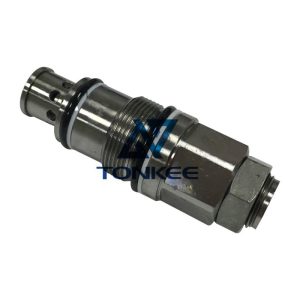
Rotary valves, in general, are devices used in various industries for controlling the flow of fluids or gases.
They consist of a rotating disc or rotor that has multiple ports or passages, allowing the medium to flow through or be diverted. While I cannot provide specific details about the "DH55 Rotary Valve," I can offer some general information about rotary valves to give you a better understanding of their functionality.
Rotary valves are commonly used in applications such as pneumatic conveying systems, industrial processing equipment, and power generation plants. They are known for their reliability, durability, and ability to handle a wide range of operating conditions.
One crucial aspect of rotary valves is their construction and materials. They are typically made of high-quality materials such as stainless steel or cast iron to ensure resistance to corrosion and wear. The rotor is precision-machined to ensure smooth operation and a tight seal between the rotor and the valve body.
Rotary valves can be operated manually or actuated using various mechanisms, including electric motors, hydraulic systems, or pneumatic cylinders. This allows for precise control over the valve's position and flow rate.
One of the primary functions of a rotary valve is to regulate the flow of materials or gases.
By rotating the rotor, the valve can open or close the passages, allowing the medium to pass through or be blocked. This feature is crucial in maintaining optimal process conditions, preventing backflow, or controlling the feeding of materials.
Rotary valves also offer advantages in terms of sealing. The close tolerances between the rotor and valve body minimize leakage, ensuring efficient operation and preventing the escape of gases or materials. Additionally, some rotary valves feature special sealing mechanisms, such as flexible seals or air purging systems, to enhance their sealing capabilities.
Another notable feature of rotary valves is their ability to handle abrasive or bulk materials. The design of the valve allows for the passage of solid particles without causing excessive wear or clogging. This makes them suitable for applications involving granular materials, powders, or substances with irregular shapes.


